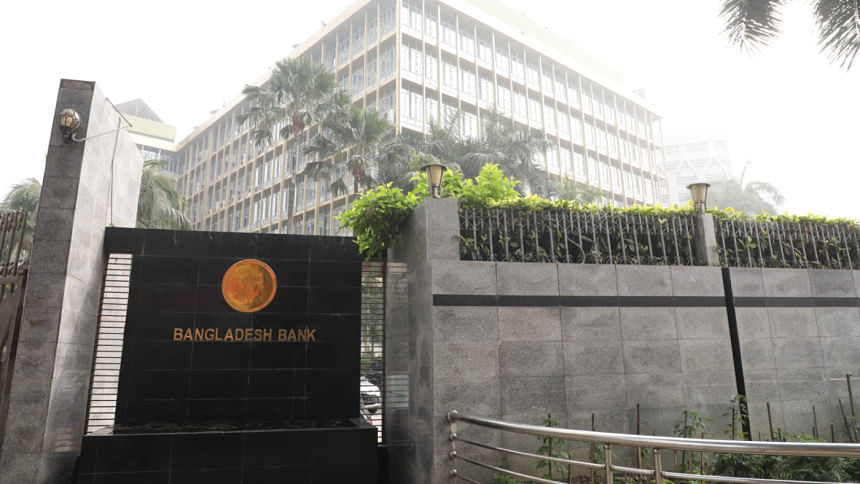BB eases currency controls in IMF reform push

- Rate returns to framework driven by demand and supply
- Banks allowed to 'freely' negotiate dollar rate for interbank, customer transactions
- BB sets aside $500m to support market
Bangladesh has moved to a more flexible, market-oriented exchange rate system, easing pressure on foreign exchange reserves and meeting a key condition tied to a $4.7 billion loan programme with the International Monetary Fund.
The central bank yesterday lifted a Tk 1 spread between buying and selling rates of the dollar by repealing a January directive. At the same time, it reinstated an earlier circular issued in December 2024, allowing banks to "freely" negotiate the dollar rate for both interbank and customer transactions. That marks a formal return to a pricing framework driven by demand and supply.
While not a fully floating regime, the move grants banks wider autonomy in setting rates and reflects a shift toward managed flexibility.
Bangladesh Bank is now expected to step back from daily intervention but will retain the option to stabilise the market when necessary. To that end, it has set aside a $500 million fund to support the foreign exchange market.
"We believe the exchange rate will remain broadly where it is now, around its current level," Governor Ahsan H Mansur told reporters at a virtual briefing from Dubai yesterday.
"We don't anticipate any need for intervention going forward. This does not mean the dollar can be sold at any price. We will be able to keep the market-based system operational."
Mansur also warned that the central bank would take firm action against rogue traders seeking to manipulate the market.
Now, Bangladesh Bank will publish a daily reference benchmark exchange rate, a weighted average of actual market quotes submitted by banks. This is meant to guide the market without enforcing a fixed rate.
To support this benchmark system, banks will now be required to report all foreign exchange transactions equal to or above $100,000 twice daily: once by 11:30am for trades executed before 11:00am, and again by 5:30pm for trades completed between 11:00am and 5:00pm. The central bank will provide a standard template for reporting.
The central bank described the changes as part of a broader move toward "wider flexibility in exchange rate management," a stance that aligns with IMF recommendations.
Analysts said the goal is to gradually replace administrative controls with a transparent, market-responsive pricing framework, while retaining regulatory oversight.
Mansur said the decision was made as Bangladesh reached a full staff-level agreement with the IMF over the release of $1.3 billion in the next two tranches of the loan programme.
"We believe the time is right to introduce a market-based exchange rate as the current account deficit is manageable, and our reserves have risen without external support," Mansur said.
Analysts say the effectiveness of the new framework will depend on how strictly the central bank maintains its commitment to flexibility and how quickly interbank liquidity improves.
Zahid Hussain, a former lead economist at the World Bank's Dhaka office, welcomed the central bank's "bold" step, which he said signals confidence in the ability of the market.
If the BB maintains its commitment to a flexible rate, the taka can adjust dynamically in response to external shocks, including volatile global commodity prices, economic downturns among major trading partners, and natural disasters, according to him.
A flexible exchange rate lets businesses and investors trade based on real market conditions, improving pricing and boosting economic agility, he said.
"BB should intervene only when necessary, such as during periods of natural disasters or large unanticipated financial shocks."
NECESSITY OF IMF FUNDS
Mansur dismissed concerns about the necessity of IMF loans, saying the funding was less about short-term liquidity and more about signalling.
"I previously said we don't necessarily need the IMF fund urgently for our balance of payments. But if we can add a little more, what's the harm? If reserves become $28 billion or $30 billion, what's the issue? There is no major fundamental shift."
"The more important reason is signalling," Mansur added. "We are sending a message -- both to domestic and international investors, to market participants, to bankers that reforms are underway and will continue," he said.
Deputy Governor Habibur Rahman said the IMF also shifted its position during negotiations.
"Earlier, we were not agreeing -- now we are. But it's not that only the Bangladesh authorities moved forward. The IMF also compromised on some of its positions. Both sides had to yield something," he said.
Governor Mansur explained the central bank's stance on remittance syndicates and offshore aggregators.
"What aggregators do or don't do doesn't require us to react immediately," Mansur said. "If there's a large trade, banks can approach us. We'll assist. Or they can buy from another bank. The aim is to develop the interbank market."
He said speculative pressure had already diminished: "Over the past seven to eight months, we've seen the market can remain stable. When speculators tried eight months ago, they couldn't succeed. They still won't be able to."
Addressing concerns about the banking sector, Mansur said the central bank's top priority was to strengthen governance. "I firmly believe the core problem lies in weak management and board structures, compounded by the government's earlier reluctance to enforce proper oversight," he said. "That inertia is now being addressed."

 For all latest news, follow The Daily Star's Google News channel.
For all latest news, follow The Daily Star's Google News channel. 



Comments